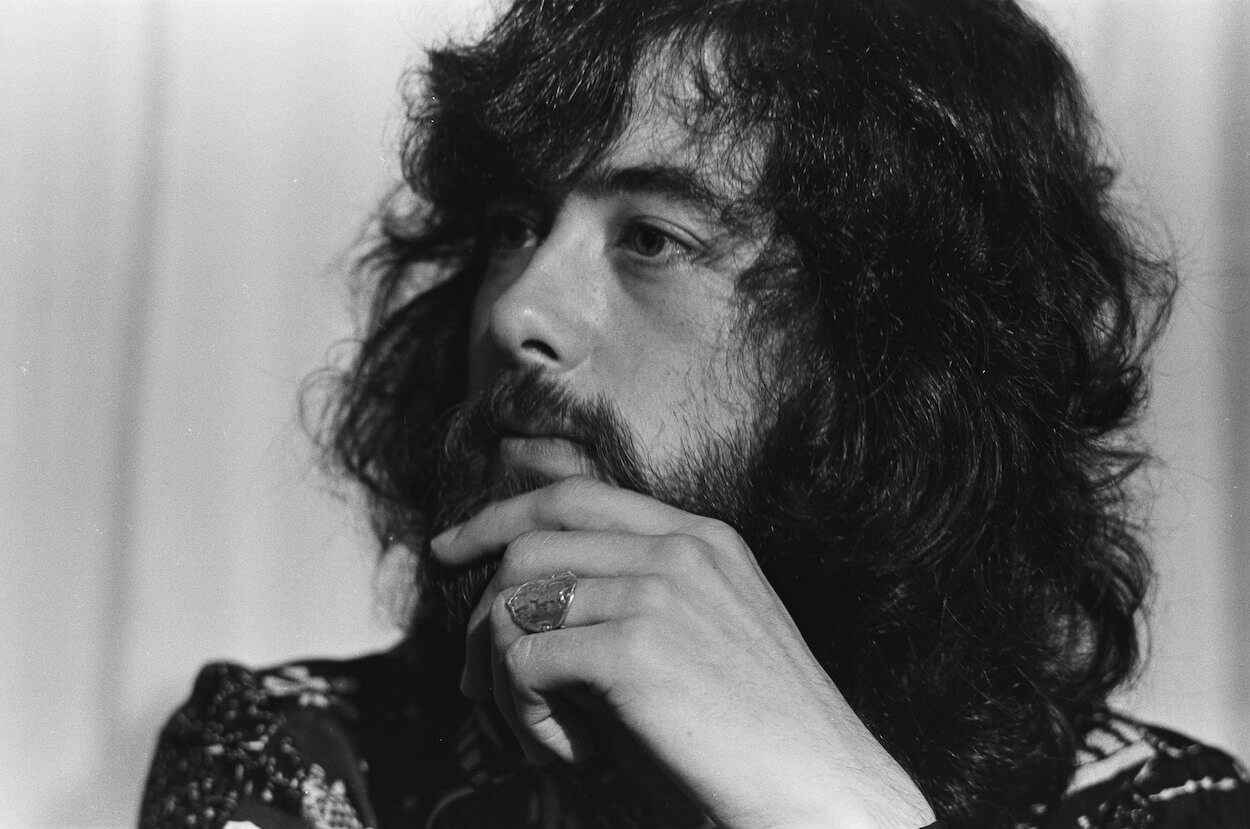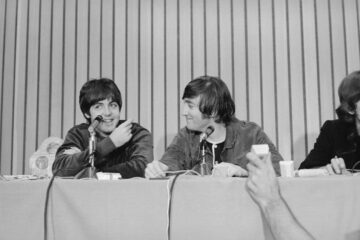Home posts Why Jimmy Page refused to share a label with Eric Clapton
Jimi Hendrix, Jimmy Page, Eric Clapton, and Jeff Beck are among the usual roster members considered for the ultimate guitar hero. Often, the upper ranks are chock-a-block with blues-rooted electric guitarists from the late-1960s psychedelic era but never has so much talent emerged from a single band as from The Yardbirds in the mid-1960s.
Of the four above-listed names, three found their footing in The Yardbirds. The band, which shuffled through a rolling cast of musicians throughout its existence, was formed in 1963 with Top Topham as its first guitarist. Within the year, he was replaced by a young Eric Clapton, who helped establish the band among the British Invasion high rollers.
In 1965, Clapton departed to pursue his dream of stardom with John Mayall and the Bluesbreakers, leaving a gap for Jeff Beck’s capable hands to fill. Intriguingly, Beck and Page’s time in the band overlapped by several months, with fans spoilt by two guitar goliaths clashing in a sonorous symbiosis.
Beck was ousted from the band in November 1966 following a spree of bitter disagreements, leaving Page space to spread his wings. Unfortunately, Beck’s departure marked the beginning of an exodus that saw the band implode. Page ultimately rebuilt the band around him as the New Yardbirds, soon legally pressured to rebrand as Led Zeppelin.
While Clapton and Page never rubbed shoulders as concurrent members of The Yardbirds, they were intensely aware of each other as two titans of British guitar excellence. Naturally, a friendly rivalry broke out between the pair in the late 1960s as Clapton embraced psychedelia with Cream and Page laid the Led Zeppelin foundations.
Page, the early patron and leader of Led Zepplin, financed the 1968 debut album out of his own pocket. Satisfied with their sonic identity, he brought the album to Atlantic Records, who gave Led Zeppelin an advance of around $1.5million in today’s money. This remains the most generous advance the label ever gave one of its artists.
Page’s choice to approach Atlantic directly would have been considered rather unconventional at the time. Other prominent rock contemporaries found stable homes at labels like Decca, EMI, Polydor and Atco, the Atlantic subsidiary to which Cream was signed. However, Page sought distinction and avoided sharing a label with Clapton at all costs.
“I made it very clear to them that I wanted to be on Atlantic rather than their rock label, Atco, which had bands like Sonny and Cher and Cream. I didn’t want to be lumped in with those people — I wanted to be associated with something more classic,” Page revealed in a 2012 interview with Guitar World.
“They were aware of my work with the Yardbirds because they were pretty hip people, so they were very interested,” he added.
Listen to ‘Babe I’m Gonna Leave You’, a classic song from Led Zeppelin’s 1968 debut album, below.




